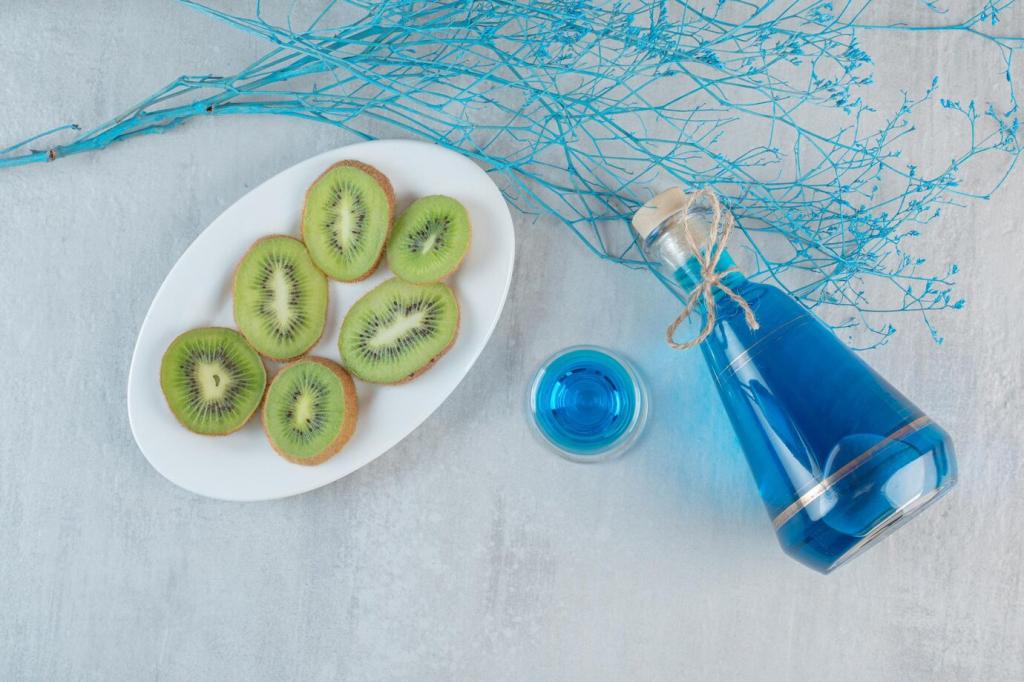Chosen theme: Comparing Different Types of Beverages for Hydration. Welcome to a clear, practical guide that pits everyday drinks against each other—water, tea, coffee, milk, juice, sparkling water, sports drinks, and more—so you can sip smarter. Share your favorites in the comments and subscribe for weekly hydration insights.
Water vs. Sports Drinks: The Everyday Decision
When Water Wins
For desk days, light walks, and short workouts, water hydrates efficiently without sugar or additives. Add a slice of citrus or cucumber for flavor, keep a bottle visible, and sip consistently throughout the day to stay comfortably ahead of thirst.
When Electrolytes Matter
During long, hot, or high-intensity sessions, sweat losses include sodium and fluid. A sports drink can replace both, reduce cramping risk, and maintain performance. Choose formulations with moderate sodium and carbohydrates, and avoid overly sweet options that upset your stomach.
Try This: Match Drink to Effort
For the next week, note workout duration, temperature, and what you drink. Compare energy, recovery, and bathroom trips. Share your experiment results below, and subscribe to get our sweat-rate calculator in the next newsletter.

Coffee and Tea: Caffeine, Diuresis, and Net Hydration
Habitual coffee and tea drinkers generally retain most of the fluid they consume. While caffeine can mildly increase urination, typical servings still contribute to daily hydration. Balance your cups with plain water, and watch added sugars that sneak in with flavorings.
Milk, Coconut Water, and Juice: Nutrient-Rich Hydrators
Why Milk Scores Surprisingly High
Research on beverage hydration suggests milk can retain fluid effectively thanks to protein, natural sugars, and sodium, which slow stomach emptying and enhance absorption. It’s great post-workout, but be mindful of lactose tolerance and calories relative to your goals.
Coconut Water vs. Sports Drinks
Coconut water offers natural potassium and a light taste, but often has less sodium than what heavy sweaters need. Sports drinks generally supply more sodium for intense efforts. Choose based on sweat rate, preference, and gastrointestinal comfort during longer training.
Juice: Vitamins With a Sweet Side
Juice hydrates but carries concentrated sugars and calories. For everyday sipping, dilute one part juice with two parts water to lighten sweetness while keeping flavor. Tell us your favorite blend, and we’ll feature creative mixes in a subscriber-only roundup.
Sparkling vs. Still: Bubbles, Fullness, and Absorption
Carbonation itself does not dehydrate you. Sparkling and still water hydrate similarly when sugar and sodium are equal. Some people feel pleasantly fuller with bubbles, while others experience bloating; choose the option that encourages you to drink enough consistently.

Alcohol and Hydration: Navigating the Diuretic Effect
Why Alcohol Pulls Water
Alcohol suppresses antidiuretic hormone, increasing urine output and fluid loss. Lower-alcohol options, like light beer, are generally less dehydrating than spirits. Still, net hydration drops, so plan ahead with water and electrolytes before, during, and after social events.
Smarter Pairings and Pacing
Alternate every alcoholic drink with a full glass of water or a low-sugar electrolyte beverage. Eat salty snacks in moderation to aid retention without overdoing calories. Set a simple limit before you start, and schedule a tall water as your nightcap.
Your Social Strategy
Share your go-to low-alcohol or zero-proof choices that keep you refreshed. Try a spritz with sparkling water and citrus at your next gathering. Report back on sleep quality, morning thirst, and mood. Subscribe for our party-proof hydration checklist.

